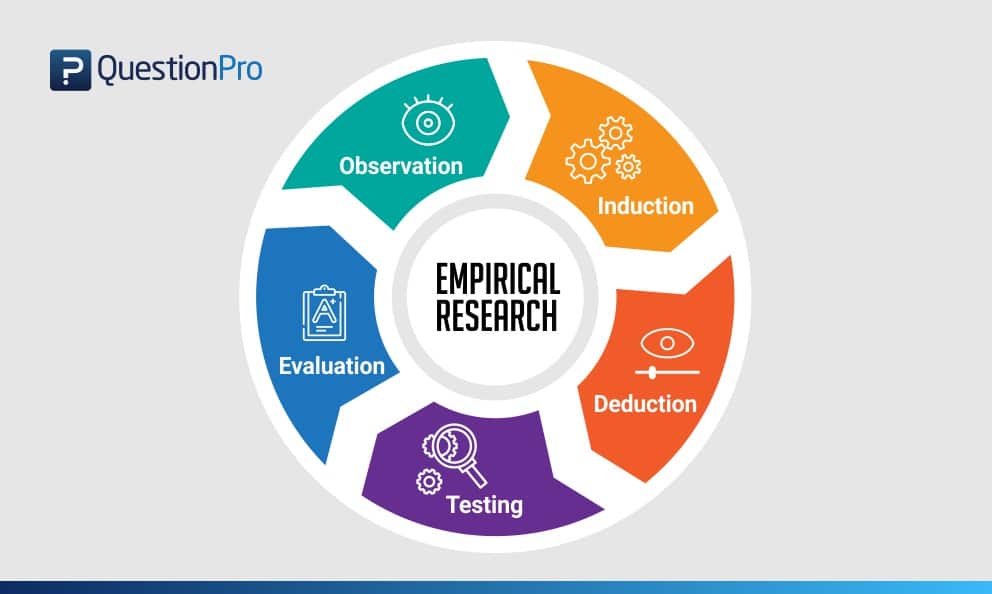
Qualitative Research- (Critical) Ethnography Guidelines Ethnography: An Introduction to Definition and Method Loshini Naidoo University of Western Sydney, Sydney, NSW Australia 1. Introduction Ethnography, emerging from anthropology, and adopted by sociologists, is a qualitative methodology that lends itself to …
The Advantages And Disadvantages Of Ethnographic Studies
Journal of Contemporary Ethnography Ethnographic Research. I, Peter Gill, declare that the PhD thesis entitled ‘The Everyday Lives of Men: An Ethnographic Investigation of Young Adult Male Identity’ is no more that 100,000 words in length including quotes and exclusive of tables, figures, appendices, bibliography, references and footnotes. This thesis contains no material that has been, Importance of Qualitative Research Across Different Fields - Free download as Powerpoint Presentation (.ppt / .pptx), PDF File (.pdf), Text File (.txt) or view presentation slides online. Importance of Qualitative Research Across Different Fields.
Researching the social: an introduction to ethnographic research The aim of this Reader is to illustrate the innovation and variety within recent ethnographic research. It will be of interest to academics and students across the social sciences but is particularly directed towards novice researchers. It includes work from a range of disciplines and different social and national contexts Ethnography: An Introduction to Definition and Method 5 context auto ethnography was used to challenge hegemonic discourses and therefore, validates the experiences of others whatever these may be.
qualitative research, ethnographic research is more difficult to undertake. For example, due to the need to spend relatively Practice points. With its origins in anthropology, ethnography is the study of social interactions, behaviours and perceptions that occur within groups, organisations and communities. Ethnography has an underlying 16/12/2009 · Advantages & Disadvantages of Ethnographic Research. Ethnographic research is a method of study which involves the field observation and qualitative analysis of human behavior. While ethnographic research can be applied to virtually any kind of sociological or anthropological subject of inquiry, there are distinct advantages and disadvantages
16/12/2009 · Advantages & Disadvantages of Ethnographic Research. Ethnographic research is a method of study which involves the field observation and qualitative analysis of human behavior. While ethnographic research can be applied to virtually any kind of sociological or anthropological subject of inquiry, there are distinct advantages and disadvantages International Journal of Qualitative Methods 3 (2) June, 2004 1 Internet Ethnography: Online and Offline Liav Sade-Beck Liav Sade-Beck, PhD student, The Department of Behavioral Sciences, Ben-Gurion University of the Negev, Beer-Sheva, Israel Abstract: This article proposes a new methodology for qualitative research on the Internet,
phenomena in the social world.” Therefore, qualitative research appears to be an overarching concept under which a variety of issues may be placed, and it has positive and negative perspectives. 3.1 Advantages There are some benefits of using qualitative research approaches and methods. Firstly, qualitative research The Use of Ethnographic Techniques in Educational Research Stephen Wilson Center for New Schools There is a growing interest in the use of anthropological techniques in educational and psychological research. The back- grounds of many researchers, however, contain little training in or experience with this kind of research, also called qualitative, phenomenological, or ethnographic. Because
01/10/2017 · Collectively qualitative research is a group of methodologies, with each approach offering a different lens though which to explore, understand, interpret or explain phenomena in real word contexts and settings. This article will provide an overview of one of the many qualitative approaches, ethnography , and its relevance to healthcare. We Home > Read &
Publish > Journals > TESOL Quarterly > TESOL Quarterly Research Guidelines > Qualitative Research: (Critical) Ethnography Guidelines The following guidelines are provided for submissions to TESOL Quarterly adopting an ethnographic approach by developing a firsthand, contextualized, naturalistic, hypotheses-generating, emic orientation to the study of TESOL through the …
Ethnography: An Introduction to Definition and Method 5 context auto ethnography was used to challenge hegemonic discourses and therefore, validates the experiences of others whatever these may be. 01/05/2016 · Ethnography is an ideal methodology to help understand the everyday challenges that shape graduate medical education (GME). Ethnography refers to a qualitative research project with the goal of offering a rich and detailed description of everyday life.
Different versions of ethnographic research Ethnography exists in many forms and ethnographers continuously debate about what counts as ethnography, and ‘how to represent the field’ (van Maanen, 2011). As a result, there are distinct versions of ethnographic research that have their own epis temological backgrounds and varied research practices (Atkinson et al., 2007). This is why, if Applying research techniques from the social sciences, in particular from anthropology, has a number of tangible benefits. Benefits of ethnography include: Ethnography immerses the project team in participants’ lives and enables a relationship to develop with research participants over the …
Ethnography gives you a frog's eye view Frogs live in the thick of it all, and so do ethnographers, observing daily life and its practices and rituals in context. Quantitative research, by contrast, gets a … Ethnography: An Introduction to Definition and Method Loshini Naidoo University of Western Sydney, Sydney, NSW Australia 1. Introduction Ethnography, emerging from anthropology, and adopted by sociologists, is a qualitative methodology that lends itself to …
Importance of Qualitative Research Across Different Fields - Free download as Powerpoint Presentation (.ppt / .pptx), PDF File (.pdf), Text File (.txt) or view presentation slides online. Importance of Qualitative Research Across Different Fields Qualitative research involves examining non-numerical data. One type of qualitative research is an ethnographic study, which examines the characteristics of a community. Ethnography has many
qualitative research, ethnographic research is more difficult to undertake. For example, due to the need to spend relatively Practice points. With its origins in anthropology, ethnography is the study of social interactions, behaviours and perceptions that occur within groups, organisations and communities. Ethnography has an underlying The Advantages and Disadvantages of Ethnographic Studies. Discuss the advantages and disadvantages of adopting an ethnographic approach to the study of society. Answer with detailed reference to at least one ethnographic study. The grade of complexity and accuracy of the results of a social research depends on adopting the most appropriate
(PDF) Benefits of Using Qualitative Ethnographic

Importance of Qualitative Research Across Different Fields. Different versions of ethnographic research Ethnography exists in many forms and ethnographers continuously debate about what counts as ethnography, and ‘how to represent the field’ (van Maanen, 2011). As a result, there are distinct versions of ethnographic research that have their own epis temological backgrounds and varied research practices (Atkinson et al., 2007). This is why, if, Advantages & Disadvantages of Ethnographic Research Ethnographers study human cultures and societies by living among the people they study, by immersing themselves within the subject group in a process called participant-observation..
Ethnography in qualitative educational research AMEE

The Everyday Lives of Men An Ethnographic Investigation. Different versions of ethnographic research Ethnography exists in many forms and ethnographers continuously debate about what counts as ethnography, and ‘how to represent the field’ (van Maanen, 2011). As a result, there are distinct versions of ethnographic research that have their own epis temological backgrounds and varied research practices (Atkinson et al., 2007). This is why, if https://en.wikipedia.org/wiki/Qualitative_research 16/12/2009 · Advantages & Disadvantages of Ethnographic Research. Ethnographic research is a method of study which involves the field observation and qualitative analysis of human behavior. While ethnographic research can be applied to virtually any kind of sociological or anthropological subject of inquiry, there are distinct advantages and disadvantages.

Benefits of Using Qualitative Ethnographic Methodology in the Evaluation of Preservation Training Programs Performance in Developing Countries: A Case Study of the Northeast Region of Brazil 01/10/2017 · Collectively qualitative research is a group of methodologies, with each approach offering a different lens though which to explore, understand, interpret or explain phenomena in real word contexts and settings. This article will provide an overview of one of the many qualitative approaches, ethnography , and its relevance to healthcare. We
ETHNOGRAPHY OF VULNERABLE NEWCOMERS’ EXPERIENCES WITH TAXES AND BENEFITS 3 1. EXECUTIVE SUMMARY This report presents the findings of an ethnographic research project undertaken by researchers at the Accelerated Business Solutions Lab (ABSL) at the Canada Revenue Agency (CRA). It is the second of a series of ethnographic reports on the Ethnography, Field Research, Qualitative Research, Participant Observation, and Methodological Issues I recently had the pleasure of learning how to conduct ethnographic research for the first time. In this “How To” account I will describe the process by organizing my description around the following seven questions: 1. What is ethnography
01/05/2016 · Ethnography is an ideal methodology to help understand the everyday challenges that shape graduate medical education (GME). Ethnography refers to a qualitative research project with the goal of offering a rich and detailed description of everyday life. The Advantages and Disadvantages of Ethnographic Studies. Discuss the advantages and disadvantages of adopting an ethnographic approach to the study of society. Answer with detailed reference to at least one ethnographic study. The grade of complexity and accuracy of the results of a social research depends on adopting the most appropriate
Applying research techniques from the social sciences, in particular from anthropology, has a number of tangible benefits. Benefits of ethnography include: Ethnography immerses the project team in participants’ lives and enables a relationship to develop with research participants over the … Special Issue on Ethnography, Crime and Criminal Justice Editors: Max Travers, Judy Putt, Deirdre Howard- Wagner Introduction . There was a period in the US and Britain between the late 1960s and 1980s when many
Researching the social: an introduction to ethnographic research The aim of this Reader is to illustrate the innovation and variety within recent ethnographic research. It will be of interest to academics and students across the social sciences but is particularly directed towards novice researchers. It includes work from a range of disciplines and different social and national contexts Applications and Benefits of Ethnographic Research 319 goals. However, for the reasons described above, they have a negative attitude to the use of IT systems. Inconsistency between Actual and Intended Work Flow This section describes a problem that arose between the groove fit-up department responsible
Researching the social: an introduction to ethnographic research The aim of this Reader is to illustrate the innovation and variety within recent ethnographic research. It will be of interest to academics and students across the social sciences but is particularly directed towards novice researchers. It includes work from a range of disciplines and different social and national contexts 02/12/2000 · Ethnography and health care. Ethnography can be applied to healthcare issues in numerous ways. It has been seen as a way of accessing beliefs and practices, allowing these to be viewed in the context in which they occur and thereby aiding understanding of …
I, Peter Gill, declare that the PhD thesis entitled ‘The Everyday Lives of Men: An Ethnographic Investigation of Young Adult Male Identity’ is no more that 100,000 words in length including quotes and exclusive of tables, figures, appendices, bibliography, references and footnotes. This thesis contains no material that has been Different versions of ethnographic research Ethnography exists in many forms and ethnographers continuously debate about what counts as ethnography, and ‘how to represent the field’ (van Maanen, 2011). As a result, there are distinct versions of ethnographic research that have their own epis temological backgrounds and varied research practices (Atkinson et al., 2007). This is why, if
Special Issue on Ethnography, Crime and Criminal Justice Editors: Max Travers, Judy Putt, Deirdre Howard- Wagner Introduction . There was a period in the US and Britain between the late 1960s and 1980s when many Ethnography: An Introduction to Definition and Method Loshini Naidoo University of Western Sydney, Sydney, NSW Australia 1. Introduction Ethnography, emerging from anthropology, and adopted by sociologists, is a qualitative methodology that lends itself to …
Home > Read &
Publish > Journals > TESOL Quarterly > TESOL Quarterly Research Guidelines > Qualitative Research: (Critical) Ethnography Guidelines The following guidelines are provided for submissions to TESOL Quarterly adopting an ethnographic approach by developing a firsthand, contextualized, naturalistic, hypotheses-generating, emic orientation to the study of TESOL through the … Ethnography is a kind of research or study which is conducting in the real conditions unlike research conducted in the laboratory where researchers control the different elements. Best Example of an Ethnography is the Perceptron which is an AI-bas...
Ethnography gives you a frog's eye view Frogs live in the thick of it all, and so do ethnographers, observing daily life and its practices and rituals in context. Quantitative research, by contrast, gets a … around research genres and studies that do not fit within established methodologies (Caelli, Ray, & Mill, 2003). One research approach that falls under this broad category is known as generic qualitative research, which is subsequently subdivided into genres of interpretive description and descriptive qualitative research (Caelli et al., 2003

qualitative research, ethnographic research is more difficult to undertake. For example, due to the need to spend relatively Practice points. With its origins in anthropology, ethnography is the study of social interactions, behaviours and perceptions that occur within groups, organisations and communities. Ethnography has an underlying QUALITATIVE RESEARCH Qualitative research methodologies: ethnography Scott Reeves,1 Ayelet Kuper,2 Brian David Hodges3 The previous articles in this series discussed several methodological approaches commonly used by qualitative researchers in the health professions. This article focuses on another important qualitative meth-odology
Generic Qualitative Approaches Pitfalls and Benefits of

Ethnography challenges and opportunities Evidence-Based. Ethnography is a kind of research or study which is conducting in the real conditions unlike research conducted in the laboratory where researchers control the different elements. Best Example of an Ethnography is the Perceptron which is an AI-bas..., Benefits of Using Qualitative Ethnographic Methodology in the Evaluation of Preservation Training Programs Performance in Developing Countries: A Case Study of the Northeast Region of Brazil.
Understanding the Culture of Graduate Medical Education
Internet Ethnography Online and Offline. beyond cyber-ethnography has the potential to inform the epistemological underpinnings of ethnographic research in the modern era. We demonstrate how online spaces influence everyday social life, and then discuss multisited ethnography and the process of adopting innovative ideas, such as including digital data collection, as an ethnographic tool., Ethnography is a kind of research or study which is conducting in the real conditions unlike research conducted in the laboratory where researchers control the different elements. Best Example of an Ethnography is the Perceptron which is an AI-bas....
Different versions of ethnographic research Ethnography exists in many forms and ethnographers continuously debate about what counts as ethnography, and ‘how to represent the field’ (van Maanen, 2011). As a result, there are distinct versions of ethnographic research that have their own epis temological backgrounds and varied research practices (Atkinson et al., 2007). This is why, if QUALITATIVE RESEARCH Qualitative research methodologies: ethnography Scott Reeves,1 Ayelet Kuper,2 Brian David Hodges3 The previous articles in this series discussed several methodological approaches commonly used by qualitative researchers in the health professions. This article focuses on another important qualitative meth-odology
The advantages and disadvantages of qualitative research are quite unique. On one hand, you have the perspective of the data that is being collected. On the other hand, you have the techniques of the data collector and their own unique observations that can alter the information in subtle ways. 03/01/2018 · Cross-platform mobile apps for qualitative and ethnographic research (or hybrid qualitative and ethnographic research) allow us to capture authentic, in-the-moment behaviors and insights. Rather than relying on the memories of those we are researching by bringing them to a specific location for interviews, research is conducted in-context and
Researching the social: an introduction to ethnographic research The aim of this Reader is to illustrate the innovation and variety within recent ethnographic research. It will be of interest to academics and students across the social sciences but is particularly directed towards novice researchers. It includes work from a range of disciplines and different social and national contexts Ethnography: An Introduction to Definition and Method Loshini Naidoo University of Western Sydney, Sydney, NSW Australia 1. Introduction Ethnography, emerging from anthropology, and adopted by sociologists, is a qualitative methodology that lends itself to …
Ethnography is a kind of research or study which is conducting in the real conditions unlike research conducted in the laboratory where researchers control the different elements. Best Example of an Ethnography is the Perceptron which is an AI-bas... qualitative research involves collecting and/or working with text, images, or sounds. An outcome-oriented definition such as that proposed by Nkwi et al. avoids (typically inaccurate) generalizations and the unnecessary (and, for the most part, inaccurate) dichotomous positioning of qualitative research with respect to its quantitative coun -
The advantages and disadvantages of qualitative research are quite unique. On one hand, you have the perspective of the data that is being collected. On the other hand, you have the techniques of the data collector and their own unique observations that can alter the information in subtle ways. The first step is walking away from the field with a deep, deep understanding of our research topic. So as we enter the reporting phase of the research, we become an unbounded resource, a great go-between, between you and your consumer. We then pass along the torch through stories, videos, and page after page of insights, and by the end of it
Researching the social: an introduction to ethnographic research The aim of this Reader is to illustrate the innovation and variety within recent ethnographic research. It will be of interest to academics and students across the social sciences but is particularly directed towards novice researchers. It includes work from a range of disciplines and different social and national contexts Different versions of ethnographic research Ethnography exists in many forms and ethnographers continuously debate about what counts as ethnography, and ‘how to represent the field’ (van Maanen, 2011). As a result, there are distinct versions of ethnographic research that have their own epis temological backgrounds and varied research practices (Atkinson et al., 2007). This is why, if
01/05/2016 · Ethnography is an ideal methodology to help understand the everyday challenges that shape graduate medical education (GME). Ethnography refers to a qualitative research project with the goal of offering a rich and detailed description of everyday life. beyond cyber-ethnography has the potential to inform the epistemological underpinnings of ethnographic research in the modern era. We demonstrate how online spaces influence everyday social life, and then discuss multisited ethnography and the process of adopting innovative ideas, such as including digital data collection, as an ethnographic tool.
Ethnography gives you a frog's eye view Frogs live in the thick of it all, and so do ethnographers, observing daily life and its practices and rituals in context. Quantitative research, by contrast, gets a … Major steps involved in Ethnography Skills required for Ethnographic Studies Ethnographic studies require wide range of skills. These can be briefly listed as follows: High degree of interpretative agility is required to understand the wide range of issues and facts involved in the study.
Different versions of ethnographic research Ethnography exists in many forms and ethnographers continuously debate about what counts as ethnography, and ‘how to represent the field’ (van Maanen, 2011). As a result, there are distinct versions of ethnographic research that have their own epis temological backgrounds and varied research practices (Atkinson et al., 2007). This is why, if I, Peter Gill, declare that the PhD thesis entitled ‘The Everyday Lives of Men: An Ethnographic Investigation of Young Adult Male Identity’ is no more that 100,000 words in length including quotes and exclusive of tables, figures, appendices, bibliography, references and footnotes. This thesis contains no material that has been
There are many variations of observational research, both off-and online, but central to the ethnographic approach is the role of the observer. This role has to do with both the physical as well as the psychological or emotional distance between the observer and the observed, and can range from remote off-site observation to complete immersion… Different versions of ethnographic research Ethnography exists in many forms and ethnographers continuously debate about what counts as ethnography, and ‘how to represent the field’ (van Maanen, 2011). As a result, there are distinct versions of ethnographic research that have their own epis temological backgrounds and varied research practices (Atkinson et al., 2007). This is why, if
Ethnography YouTube. Advantages & Disadvantages of Ethnographic Research Ethnographers study human cultures and societies by living among the people they study, by immersing themselves within the subject group in a process called participant-observation., Different versions of ethnographic research Ethnography exists in many forms and ethnographers continuously debate about what counts as ethnography, and ‘how to represent the field’ (van Maanen, 2011). As a result, there are distinct versions of ethnographic research that have their own epis temological backgrounds and varied research practices (Atkinson et al., 2007). This is why, if.
The Use of Ethnographic Techniques in Educational Research

ETHNOGRAPHIC RESEARCH SAGE Publications. phenomena in the social world.” Therefore, qualitative research appears to be an overarching concept under which a variety of issues may be placed, and it has positive and negative perspectives. 3.1 Advantages There are some benefits of using qualitative research approaches and methods. Firstly, qualitative research, International Journal of Qualitative Methods 3 (2) June, 2004 1 Internet Ethnography: Online and Offline Liav Sade-Beck Liav Sade-Beck, PhD student, The Department of Behavioral Sciences, Ben-Gurion University of the Negev, Beer-Sheva, Israel Abstract: This article proposes a new methodology for qualitative research on the Internet,.
Journal of Ethnographic & Qualitative Research

The Five Observer Roles in Ethnography Research Design. Ethnography is one of the oldest forms of qualitative social research. It is a research methodology suited to the exploration of cultures, and is usually the chosen method for anthropological investigation. This paper will provide a brief background to ethnography, and will discuss the method in the light of current healthcare research https://en.wikipedia.org/wiki/Qualitative_research ethnographic research does not have this facility because the research is carried out in natural setting and due to the long time period of observation. Despite the limitations of the ethnographic approach, it has benefits for research in naturalistic setting such as class room research, language learning.

around research genres and studies that do not fit within established methodologies (Caelli, Ray, & Mill, 2003). One research approach that falls under this broad category is known as generic qualitative research, which is subsequently subdivided into genres of interpretive description and descriptive qualitative research (Caelli et al., 2003 Home > Read &
Publish > Journals > TESOL Quarterly > TESOL Quarterly Research Guidelines > Qualitative Research: (Critical) Ethnography Guidelines The following guidelines are provided for submissions to TESOL Quarterly adopting an ethnographic approach by developing a firsthand, contextualized, naturalistic, hypotheses-generating, emic orientation to the study of TESOL through the …
The Use of Ethnographic Techniques in Educational Research Stephen Wilson Center for New Schools There is a growing interest in the use of anthropological techniques in educational and psychological research. The back- grounds of many researchers, however, contain little training in or experience with this kind of research, also called qualitative, phenomenological, or ethnographic. Because Comparing Case Study and Ethnography as Qualitative Research Approaches Anne Suryani1 Abstract: This article reviews several differences between case study and ethnography in terms of definitions, characteristics, strengths and limitations. It provides current information by comparing these approaches from various social researchers
13/09/2017 · Sorry for the interruption. We have been receiving a large volume of requests from your network. To continue with your YouTube experience, please fill out the form below. QUALITATIVE RESEARCH Qualitative research methodologies: ethnography Scott Reeves,1 Ayelet Kuper,2 Brian David Hodges3 The previous articles in this series discussed several methodological approaches commonly used by qualitative researchers in the health professions. This article focuses on another important qualitative meth-odology
ethnographic research does not have this facility because the research is carried out in natural setting and due to the long time period of observation. Despite the limitations of the ethnographic approach, it has benefits for research in naturalistic setting such as class room research, language learning Researching the social: an introduction to ethnographic research The aim of this Reader is to illustrate the innovation and variety within recent ethnographic research. It will be of interest to academics and students across the social sciences but is particularly directed towards novice researchers. It includes work from a range of disciplines and different social and national contexts
around research genres and studies that do not fit within established methodologies (Caelli, Ray, & Mill, 2003). One research approach that falls under this broad category is known as generic qualitative research, which is subsequently subdivided into genres of interpretive description and descriptive qualitative research (Caelli et al., 2003 Ethnography: An Introduction to Definition and Method 5 context auto ethnography was used to challenge hegemonic discourses and therefore, validates the experiences of others whatever these may be.
Advantages & Disadvantages of Ethnographic Research Ethnographers study human cultures and societies by living among the people they study, by immersing themselves within the subject group in a process called participant-observation. The use of ethnography in social work research. Article (PDF Available) in Qualitative Social Work 13(1):3-7 · December 2013 with 1,753 Reads How we measure 'reads' A 'read' is counted each time
Redefinition of the term qualitative to refer to a research methodology may leave us with no term which can be used to distinguish between qualitative and quantitative data. In order to avoid confusion, this book will follow current usage and refer to the family of research methods which employ ethnographic procedures as qualitative research. 25/04/2011 · Research in healthcare settings and medical education has relied heavily on quantitative methods. However, there are research questions within these academic domains that may be more adequately addressed by qualitative inquiry. While there are many qualitative approaches, ethnography is …
Applying research techniques from the social sciences, in particular from anthropology, has a number of tangible benefits. Benefits of ethnography include: Ethnography immerses the project team in participants’ lives and enables a relationship to develop with research participants over the … Abstract. This article proposes a new way to use photographs in ethnographic research. The method builds on earlier examinations of the unique properties of photographic articulation, interpretation and use, employing the inherent ambiguities of photographic imagery.
Qualitative research involves examining non-numerical data. One type of qualitative research is an ethnographic study, which examines the characteristics of a community. Ethnography has many Ethnography is a kind of research or study which is conducting in the real conditions unlike research conducted in the laboratory where researchers control the different elements. Best Example of an Ethnography is the Perceptron which is an AI-bas...
Importance of Qualitative Research Across Different Fields - Free download as Powerpoint Presentation (.ppt / .pptx), PDF File (.pdf), Text File (.txt) or view presentation slides online. Importance of Qualitative Research Across Different Fields Advantages & Disadvantages of Ethnographic Research Ethnographers study human cultures and societies by living among the people they study, by immersing themselves within the subject group in a process called participant-observation.
Importance of Qualitative Research Across Different Fields - Free download as Powerpoint Presentation (.ppt / .pptx), PDF File (.pdf), Text File (.txt) or view presentation slides online. Importance of Qualitative Research Across Different Fields Redefinition of the term qualitative to refer to a research methodology may leave us with no term which can be used to distinguish between qualitative and quantitative data. In order to avoid confusion, this book will follow current usage and refer to the family of research methods which employ ethnographic procedures as qualitative research.
Kim is as unique in Rudyard Kipling's life and career as it is in English literature. It appeared in 1901, twelve years after Kipling had left India, the place of his birth in 1865 and the country with which his name will always be associated. More interestingly than that, however, is that Kim was Kipling's only Kim rudyard kipling pdf Nelson pdf. Kim Rudyard Kipling. Saul Reyes Islas. Download with Google Download with Facebook or download with email. Kim Rudyard Kipling. Download. Kim Rudyard Kipling.


